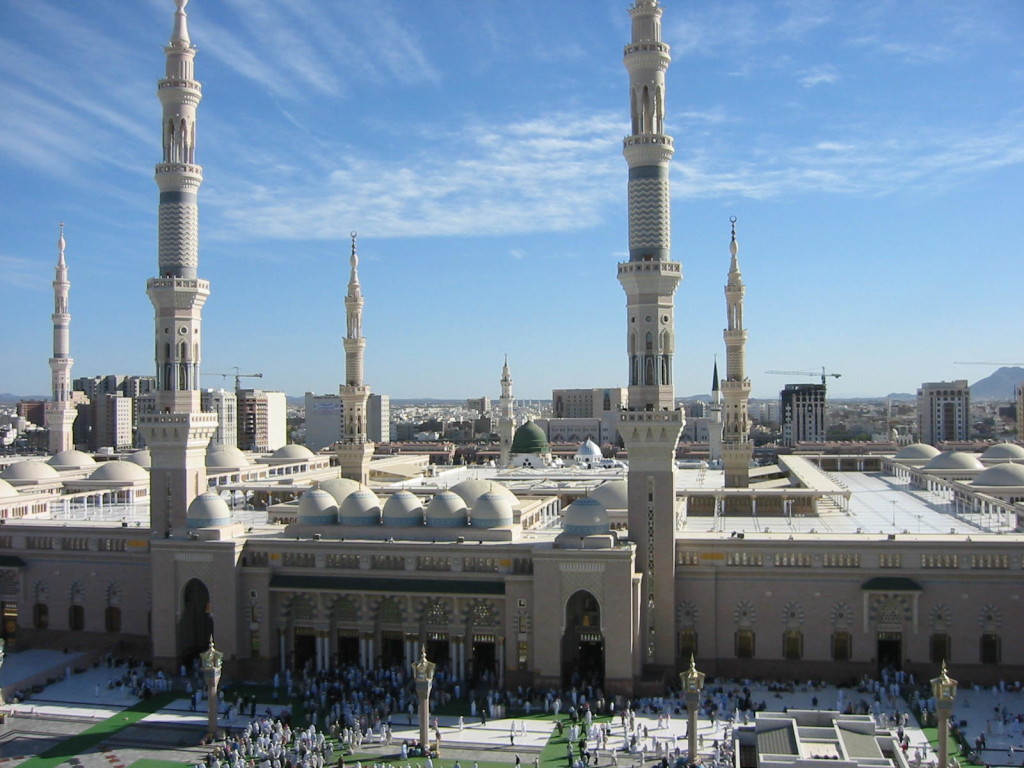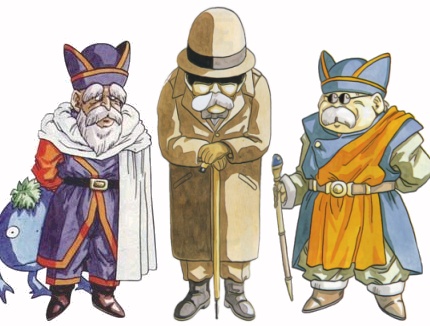Last updated on February 26, 2014
Watch this video by the Game Theorist, then return to the rest of this article. Also, BEWARE OF LOTS AND LOTS OF SPOILERS. Go play Chrono Trigger, it’s good for you.
Part of the problem with these “connections” videos and articles (that link is not discussed here), or at least my problem, usually consists of inconsistent criteria of what constitutes a “connection”. What parts deserve analysis, and which do not? Do we consider a cursory, possibly unintentional name drop as a connection? What about something that look similar to a common fantasy/sci-fi story trope? In most cases, they will spew off a list of “facts” and “connections” without making the choice of said “facts” clear. I will not be doing that sort of thing. I would rather ask the developers on their intentions behind X or Y rather than making a hasty judgment (as per my emphasis on “objectivity” when it we embark on such pursuits). And hey, thanks Gamepro, for allowing Chrono Trigger writer Masato Kato to speak:
Mr.Kato, I have a very serious question for both of you concerning Chrono Trigger, which I’m assuming one or the other of you worked on. Chrono Trigger appears to hold many, many similarities and parallels to characters and tales from the Bible, but in a somewhat subtle manner. For instance, Crono exhibits many telltale traits of Jesus Christ, such as his selfless death and resurrection, gifts from three wisemen who carry the same names as the Biblical wisemen, a walking-on-water scene in the Heckran Cave, etc. Not only Crono, but many other characters have Biblical names whose Biblical roles they conform to with great accuracy, such as Magus and Mammon. I know from Xenogears that Square has used the Bible as an extensive base for concepts, so I was wondering if either of you gentlemen could verify for me (and many other curious Chrono Trigger fans) whether or not you intentionally patterned many areas of Chrono Trigger after well-known Biblical tales. I cannot express in words how much your answering this question with a confirming yes-or-no would mean to me. I have spent an incredible amount of time dissecting and analyzing Chrono Trigger, and I simply would like to know if I’m on the right track. Thank you for your time, and thank you for the superb games you’ve brought us.
MK: I wasn’t the main story writer for Xenogears, so I can’t say much on it, but as for Chrono Trigger, I didn’t especially think of the Bible when I was writing the story. “Three wisemen who carry the same names as the Biblical wisemen…?” Oh, I see… So, that’s how they were named in the English version? In the original Japanese version, the ancient sages were named GASSHU, HASSHU, and BOSSHU. Regarding the other things you pointed out, I didn’t consciously have anything in mind, biblical or otherwise, when I wrote the story.
Translation can change the interpretation of any work a great deal, and perhaps Chrono Trigger succumbs to this as well. It’s more than likely that the English translators (Ted Woosley?) merely inserted pop culture references so that names would make more sense in our culture. Yet, you must admit that the possibility exists that the Bible might have proved a resource for Chrono Trigger. Right?
In that sense, we will view Chrono Trigger as a story, and within the realm of literature. Does it contain metaphors, allusions, and parallels to the Bible? Does Crono’s journey reflect that of Jesus Christ? Are all of these strange similarities just coincidental, or could you throw a definite Theory (har har) onto that line of though? Let’s use the accumulated evidence and see where it takes us.
The video above makes a bold claim (not really in the title of it) that many of the essential plot elements of Chrono Trigger derive from the Christian tradition. Specifically, Crono actually represents a retelling of the story of Christ, or “Jesus’ greatest hits”, we might say. The obvious problem in this interpretation will reveal itself upon further investigation, but let me make a long list of the various points with associated commentary.
The Three Wise Men, or the “Magi” as they are also often known, appear in Chrono Trigger. Although recast as the “Guru”, they share the commonly known names of Balthasar, Gaspar, and Melchior (from left to right). Each one in the game represents a different sort of wisdom, from Balthasar’s reason to Gaspar’s knowledge of time to Melchior’s understanding of life. And, like the Magi of the Bible, they also bestow gifts upon our hero Crono. Melchior gives you the Masamune, Gaspar the Time Egg, and Balthasar the Epoch. Given that they live on the eastern parts of the world map, that fact COULD be related, or could be total coincidence – it depends on whether the rabbit hole goes deeper. We do know that many traditions list them as kings of nations like India and China, so there’s a possibility. If anything, most traditions peg them as Muslims (important!).
Of course, though it’s true three wise men from the far East names are known from Christian tradition, not the Bible. Furthemore, the gifts given to Jesus weren’t exactly “useful” in the traditional sense. What does a baby do with gold, frankincense, and myrrh anyway? If anything (and this point’s highly disputed), they exist as symbols to represent kingship (i.e., kings were anointed, rich, and scented) or prefigured symbolism. Myrrh refers to death, often used in embalming, while frankincense referred to the incense burned up to YHWH, and gold as to His earthly kingship. All well and good, but do the Crono Trigger symbols refer to something similar? Not at all, in fact; all of them look purely functional, and you’d need quite a stretch to interpret the Time Egg as myrrh.
This proves a problem for the Game Theorist: which one do we mean when we make these “connections”? Do we just mean a similar narrative, or really getting into the nitty-gritty of themes and ideas? Most of the first half is devoted to discussing the Crusades rather than any Biblical characters, and these (quite strangely) remain the clearest connections of all.
He believes that Medina, the small monster town in 1000 AD, is supposed to parallel the actual Medina of the Islamic narrative. Medina is the “second” holy city from where Muhammad establishes his power base, and further to recapture Mecca. Medina ended up as Muhammad’s burial spot, hence the “holy” status of the city. It’s stated in the Qu’ran that outsiders, nonbelievers, are not allowed in the city, and that’s exactly how the monsters act in the 1000 AD Medina: hostile to non-monsters. Going back in time and changing events does affect their attitude to a large degree, but this reference to real-world fact and religious tradition rings surprisingly true.

And, of course, this rolls right into the idea that 600 AD in the Chrono Trigger world eerily parallels the Crusades. The monsters/Mystics (which, I guess, we could call Muslims) and humans/Guardia (of Christian heritage – not the crosses on uniforms and medieval imagery) lend credence to the idea. The human realm, led by kings and all that standard societal structure, leads their forces against the evil of monster kind and their leader, Magus. Magus ends up in 600 AD due to the events of the Ocean Palace, so technically he isn’t even a monster, but his magic power proves a boon to the monsters who make him their leader.
Now, to make the connection even more frank, could we call Magus (known as Maoh in Japanese, or “demon king”) our Muhammad? Or maybe a Saladin also?They surround a statue of him in the unchanged Medina of 1000 AD while still serving Lavos, so the parallel is definitely there, as is his ability to understand magic (versus Allah’s revelation to Muhammad). But only the monsters serve Lavos, not Magus – his plan, as far as I can tell, was to gain enough power to defeat Lavos, which threw him threw time, made his mother Queen Zeal into a monstrous power monger, and took his sister Schala from him. His original name, Janus, may/may not refer to the god with two faces, but Magus will do anything to defeat his enemy – hence, the connection to Lavos possibly being Allah breaks down.
The possible religious fervor of the Mystics proved a means to an end. Maybe this is how European Christian interpreted Islam (the Great Heresy, as it’s so called), and Chrono Trigger makes a real unintended commentary on it? I honestly don’t know. Perhaps it means to say that the true history’s masked with all sorts of religions and histories? Obviously, the real thing that happened was: giant space parasite lands and destroys planet, time travel solves it. It would be difficult to craft a full theory around this, though.
See, I can do these “connections” too! But the analogies and the whole story do not hold water. They, like most Japanese games, merely make reference, parallel, or mention something for the sake of mentioning it. They see history, religion, and society from a different standpoint. They mix religious and historical traditions together in a huge melting pot. You can probably see where this is going, then, with the rest of the video.

